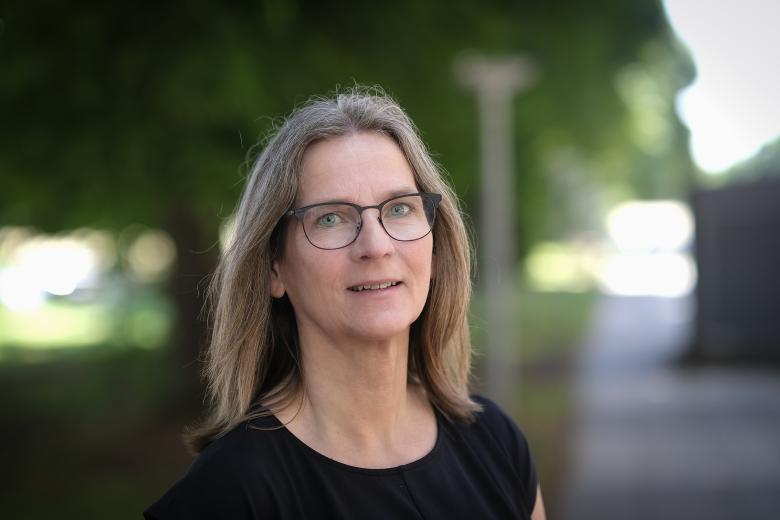Sex and gender in research: why it matters
At the Faculty of Health, Medicine and Life Sciences, staff and students strive to make a difference. For instance, Dominik measures heart rates with a phone, and Jan and Bram focus on programming. In 'Nice to meet you' these individuals introduce themselves and share their work within FHML.
Emma de Brabander is a third-year PhD candidate at the Mental Health and Neuroscience Research Institute (MHeNs). In her spare time, she is a board member of the early career researchers division of the Dutch Association for Gender and Health (Start NVG&G). She addresses gender and sex differences in research and hopes to raise more awareness around these topics. “For researchers, it is often easier to exclude women, but that does not make your research any better.”
After studying Applied Psychology in Deventer, Emma began the bachelor’s degree in Psychology at Maastricht University. She then pursued two master’s programmes: Cognitive and Clinical Neuroscience, and Neuropsychology. Now, she is in the third year of her PhD at MHeNs, where she researches pharmacogenetics in antipsychotics. She looks at variations in DNA and how these affect how an individual metabolises medication which is used to treat psychosis. “I really enjoy it, I am very attached to Maastricht University at this point,” Emma laughs, who is originally from Eindhoven. “I have been here for so long now.”
Women in research
In 2023, Emma applied for the ZonMW Summer School on Gender in Healthcare at Erasmus MC. “We learned how to better integrate sex and gender into health research,” Emma explains. “I thought it was incredibly interesting. In general, there is less research on and less funding for diseases in which women are overrepresented, such as endometriosis or polycystic ovary syndrome (PCOS). Women are also often excluded from studies if they are pregnant, use contraception, or because of their menstrual cycle. A commonly mentioned argument is that you would need three groups in your research: men, women who use contraception, and women who do not. This means more people are needed, which makes the research more expensive. Therefore, it is often easier for researchers to just exclude women. But that does not improve the quality of your research.”
Small groups
In her PhD research, Emma also looks at sex and gender. “It is actually quite easy to include it or simply report it properly,” she says. “Over the last two years, more and more scientific journals have adopted guidelines on how to handle sex and gender in research, so it is now expected to do so. In my latest research, using an online questionnaire, I asked participants about their sex and gender. One person identified as non-binary. Along with other data, such as age, there is the concern that their responses may no longer be anonymous, as it becomes easier to identify the respondent. This is often used as an argument for why these groups are not included, in addition to the fact that these groups are often small. The same applies to intersex people. Research on these groups is also severely underfunded."
Awareness
By bringing more attention to this issue, Emma hopes to raise awareness. “Sometimes it is difficult for me because this topic is personally important to me, and I find it quite unfair and frustrating,” she says. “If you want to change the status quo, you can get resistance if it comes across as confrontational. I hope people do not see it as if I am telling them they are doing something wrong, but rather that they will think about it in future research and realise that it does not take much effort to report the data differently or to conduct an additional analysis. Ideally, I would like researchers, even if they are not specifically researching sex or gender differences, to take them into account in their studies. I also understand that if you are conducting research on rare diseases and your group consists of twenty people, it may not be practical to look at sex or gender differences, because your group would become even smaller. In such cases, you could at least make sure to report whether you measured it, so that your research can be used in the future. It is all about raising awareness.”
Want to know more about Emma’s work? At the MHeNs Research Day, she speaks about sex and gender in research, and why it matters.
Text: Joëlle van Wissen
Photo: Jonathan Vos
Also read
-
Assessment is beautiful
While the Dutch word for assessment (toetsen) often carries a negative connotation, Desirée Joosten-ten Brinke sees it as something quite beautiful.

-
Five Veni grants for FHML researchers
Within FHML, five researchers are awarded a Veni grant of up to 320,000 euros to further develop their research ideas.

-
Invisible protectors: how bacteria from nature can prevent allergies
In this video, Niels van Best explains his research on how bacteria from nature can strengthen the immune system of young infants.
